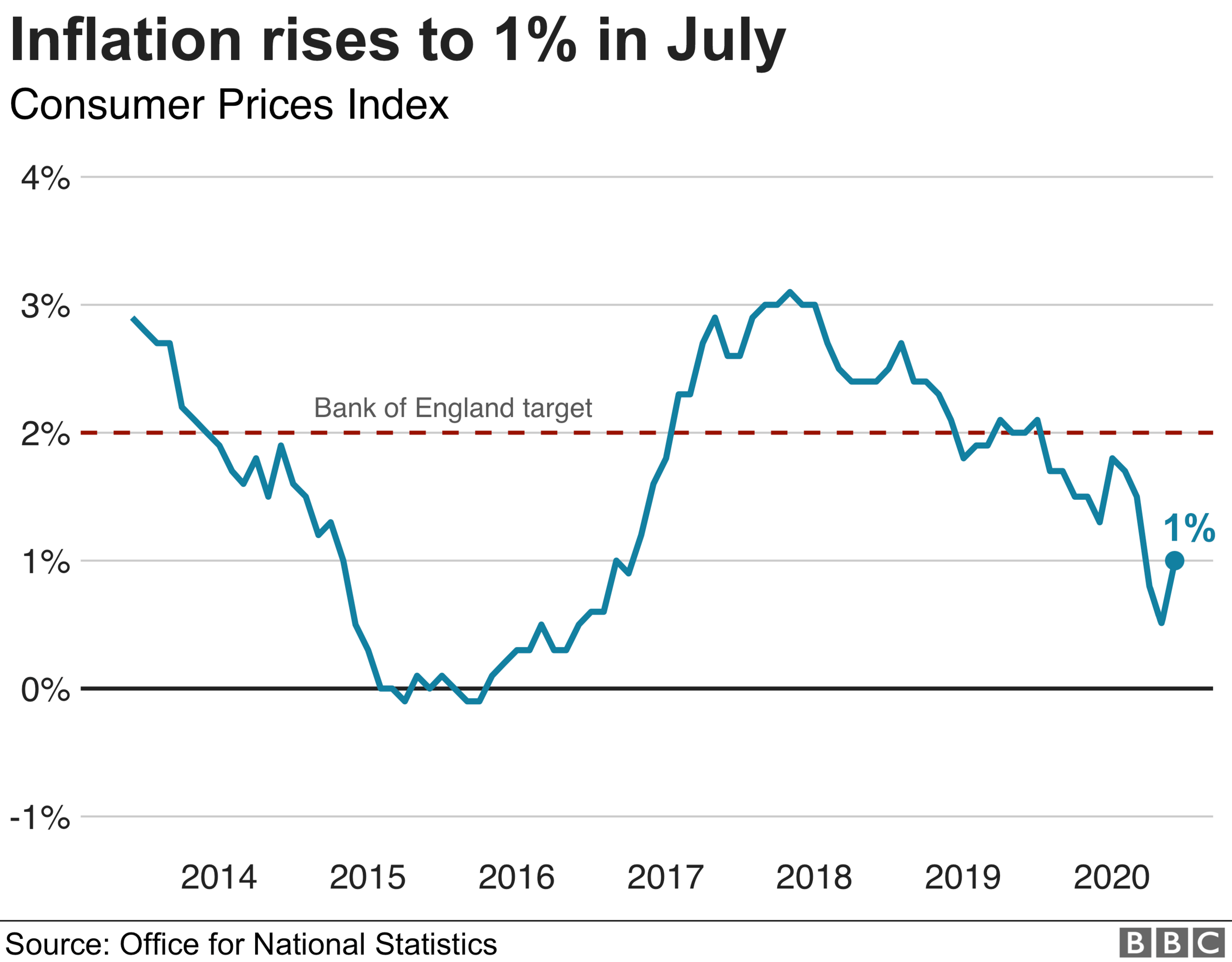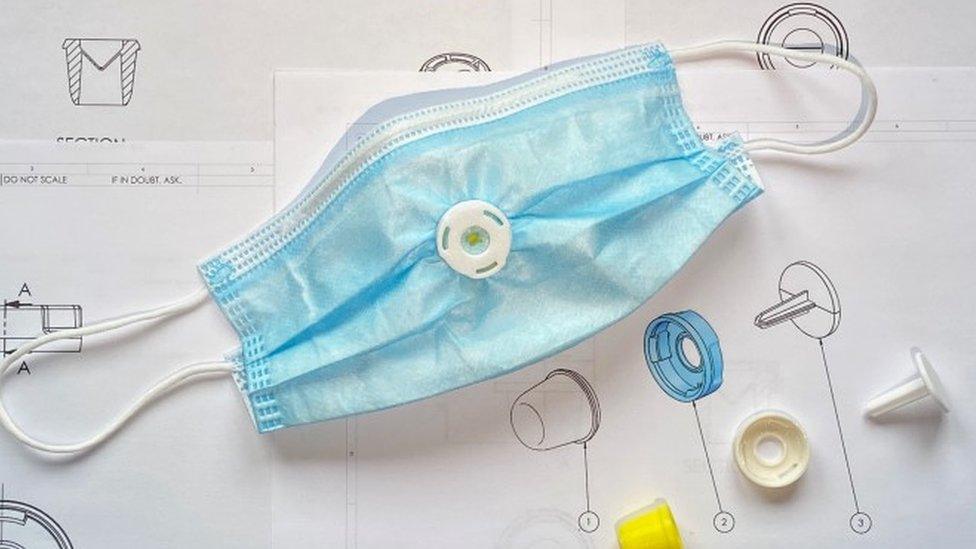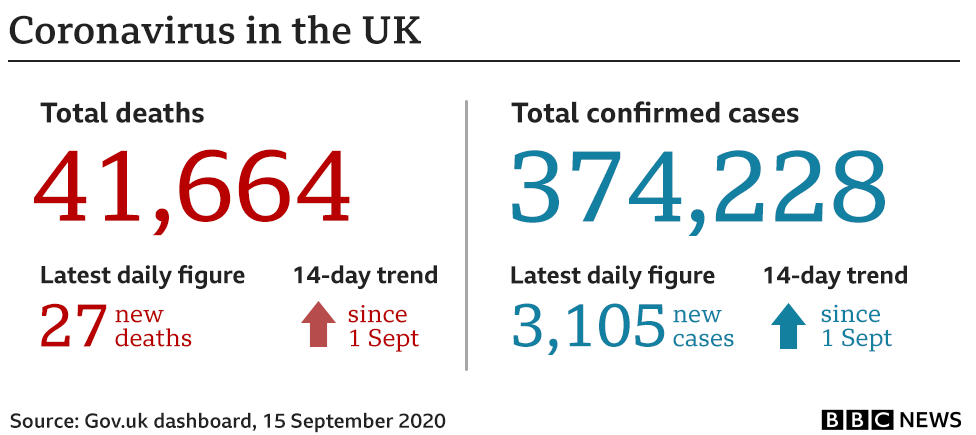Coronavirus: Testing latest, inflation and NHS masks innovation
- Published
Here are five things you need to know about the coronavirus pandemic this Wednesday morning. We'll have another update for you at 18:00 BST.
1. Testing troubles continue
The testing system is struggling with enormous demand, and in the next few days we expect to hear how those with the greatest need will be prioritised. NHS and care home staff and patients will be first in line. Frustration in some areas is clearly growing - in Bolton, for example, a "high volume of patients" turned up to accident and emergency asking for a test on Tuesday. Greater Manchester Mayor Andy Burnham said time was running out to fix things. Three families tell us why they've been left in limbo by testing delays, and we fact-check three government claims about how well the system is coping.
The BBC spoke to people trying to get tests at a centre in Oldham

2. Union redundancy fears
The head of the Unite union has warned the "redundancy floodgates" could open if the Treasury fails to continue its job retention programme in some form. The furlough scheme is due to end on 31 October, and Unite says without "a clear and urgent sign" from the government that it's responding to calls to extend it, employers will feel they have no choice but to issue redundancy notices very soon. Radio 1 Newsbeat has spoken to some young people about how they've coped with redundancy.
Chancellor Rishi Sunak told the BBC that people 'want to be in work' rather than on furlough

3. Inflation rate drops
Figures just published show the UK's inflation rate fell sharply to 0.2% in August from 1% in July as the effect of the Eat Out to Help Out scheme pushed down restaurant prices. The initiative offered diners 50% off food on certain weekdays and proved hugely popular. The cut in VAT from 20% to 5% in the hospitality sector also contributed. Why does the inflation rate matter? Let us explain.

The Bank of England aims to keep inflation around 2% - a little bit encourages people to spend their money sooner rather than later

4. Trump: 'I up-played coronavirus'
Donald Trump has insisted that far from downplaying the risk of coronavirus, he in fact, "up-played" it "in many ways". The president hit back after it emerged he told journalist Bob Woodward earlier this year that he "wanted to always play it down... because I don't want to create a panic". Mr Trump also repeated his suggestion that a vaccine could be ready "within weeks" despite scepticism from US health experts. He was speaking at a town hall meeting in Pennsylvania - a key battleground state in November's presidential election.
The lost six weeks when the US failed to control the virus

5. Masks breakthrough
Two surgeons have created a device to protect doctors at high risk of catching coronavirus. Ajith George and Chris Coulson wanted to help medics carrying out nasendoscopy procedures - where a small flexible tube fitted with a camera is inserted into the nose. That often makes patients cough, splutter and sneeze, increasing the chances of passing on infection. They were prompted to act after the death of ear, nose and throat surgeon Amged El-Hawrani with Covid-19 in March.

Four thousand of the SNAP devices will be provided to NHS hospitals for free


And don't forget...
Find more information, advice and guides on our coronavirus page.
Plus, as India surpasses five million confirmed cases, the relentlessly rising case numbers are causing another emergency - in mental health. Many patients are at risk of suffering from PTSD, but the country lacks the infrastructure to treat them.


What questions do you have about coronavirus?
In some cases, your question will be published, displaying your name, age and location as you provide it, unless you state otherwise. Your contact details will never be published. Please ensure you have read our terms & conditions and privacy policy.
Use this form to ask your question:
If you are reading this page and can't see the form you will need to visit the mobile version of the BBC website to submit your question or send them via email to YourQuestions@bbc.co.uk, external. Please include your name, age and location with any question you send in.

ILLEGAL LOCKDOWN RAVES: Annie Mac on Coronavirus Newscast
FOOD REVOLUTION: Is the way we produce and buy food set to change for good?
